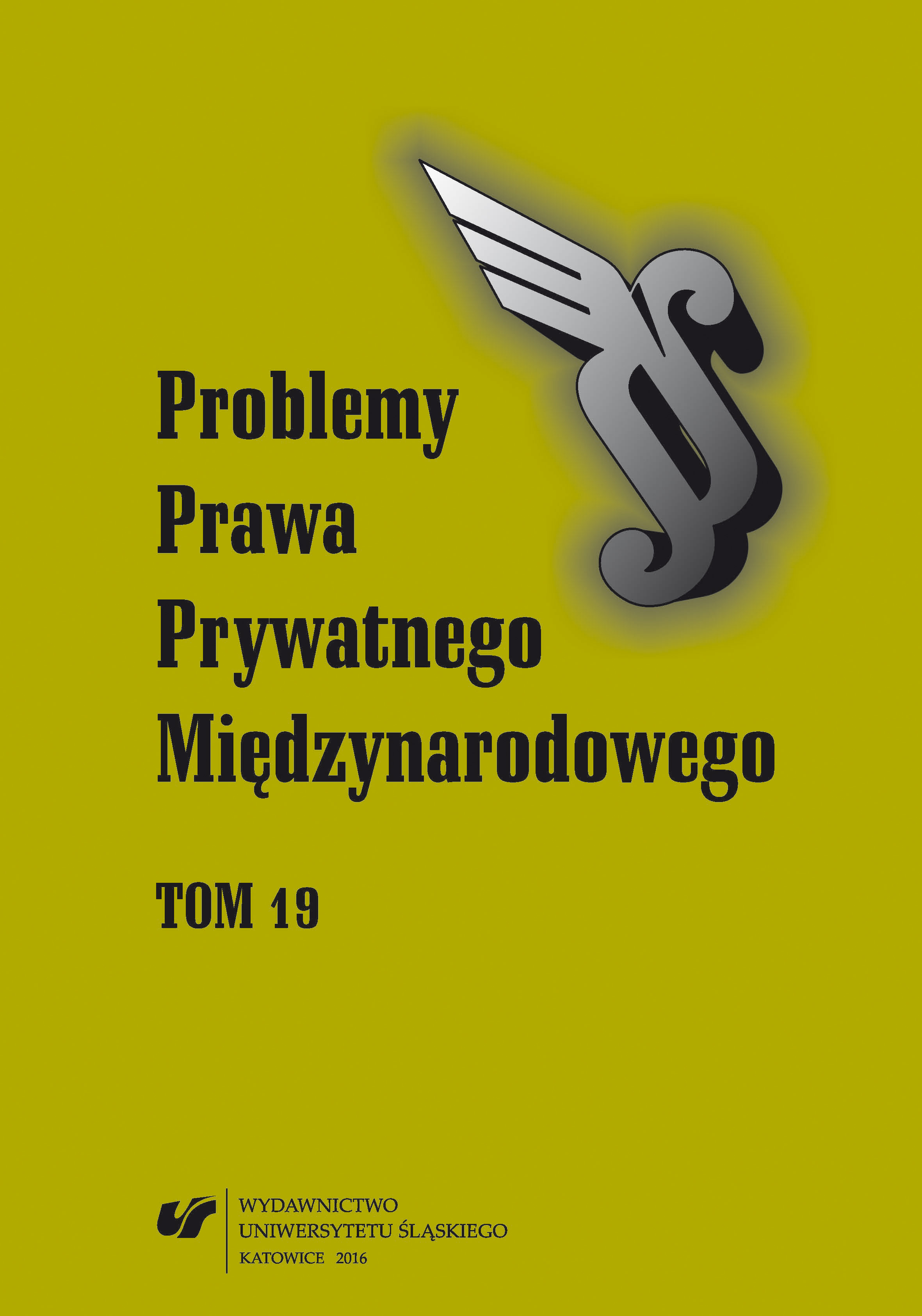Łączniki personalne osób fizycznych w prawie prywatnym międzynarodowym
(zagadnienia wybrane)
Personal connecting factors for natural persons in the choice of law (selected issues)
Author(s): Mateusz PilichSubject(s): Law, Constitution, Jurisprudence, International Law, Human Rights and Humanitarian Law, Sociology of Law
Published by: Wydawnictwo Uniwersytetu Śląskiego
Keywords: private international law; conflict of laws; choice of law; personal status of natural persons; connecting factors; nationality; domicile; habitual residence; EU law; Polish law; migrations
Summary/Abstract: Subject matter of the analysis are the so called personal connecting factors for natural persons in the choice of law, which in particular stands for the criteria of nationality, domicile, and habitual residence. Choosing one of them as the basis for the designation of the law applicable to issues of the personal status, family law, or the law of successions has been discussed since the moment of the very birth of the modern conflict of laws. The paper compares the most important characteristics of personal connecting factors, taking into consideration a general evaluation of their location within the framework of the Polish conflict‑of‑law provisions. Every solution in this field has its advantages and disadvantages, so that it is not possible a priori to say that the domination of a particular criterion is better than any other. At the same time the nationality connecting factor in its pure, objective form is gradually eliminated from both the European and international rules on the conflict of laws. Admittedly, such a trend not necessarily is a guidance for the Polish lawgiver, yet it will surely have some influence on the content of the future amendments to the Law of 4 February 2011 on the Private International Law. The author criticizes a solution consisting in using both domicile and habitual residence as subsidiary personal connecting factors, whereas this role should be assigned only to the latter. New prospects of a wider use of habitual residence not only in the private international law, but also the substantive law have been opened up recently. The answer to the challenges of the contemporary international commerce is not looking for the mystic “Sorcerer’s stone” in the form of an ideal choice‑of‑law connection but rather a skillful mixture of various methods of designating and applying the appropriate rules of law, including among others a wider use of the parties’ autonomy in the field of the choice of law.
Journal: Problemy Prawa Prywatnego Międzynarodowego
- Issue Year: 2016
- Issue No: 19
- Page Range: 7-33
- Page Count: 27
- Language: Polish

